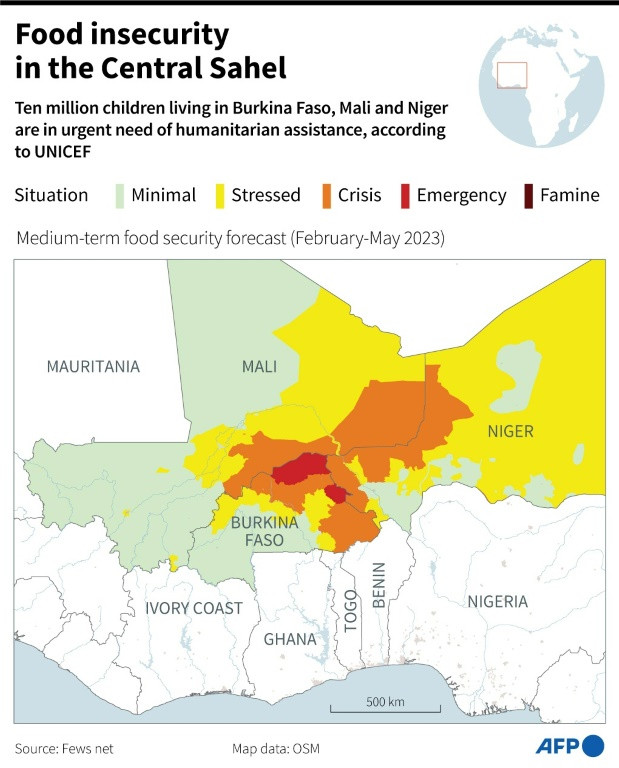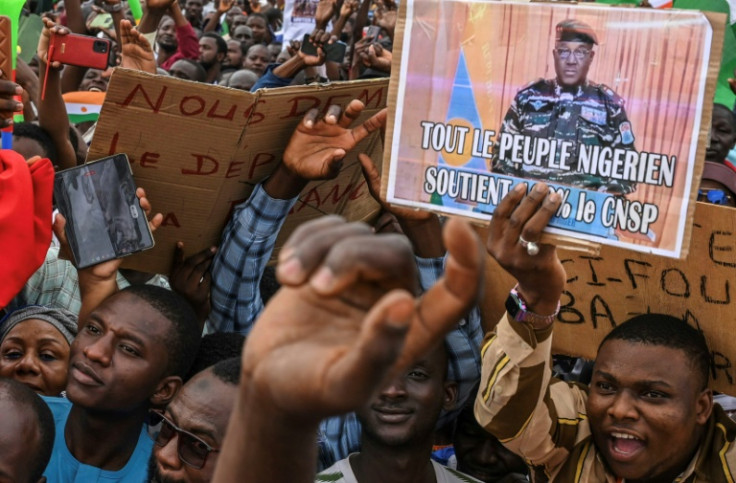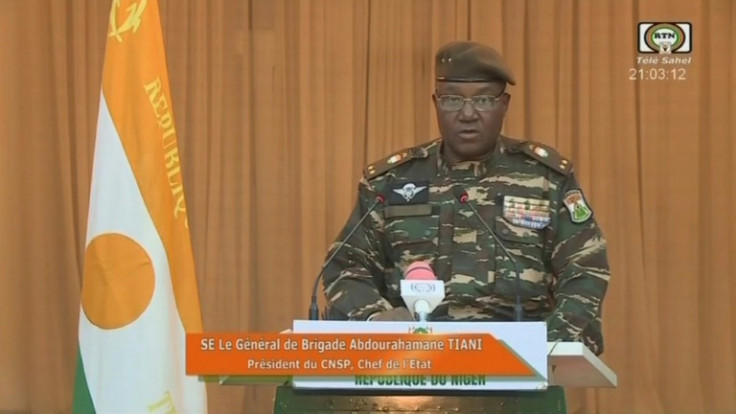W.Africa Bloc Rejects Niger's Three-year Transition Plan

West African nations have rejected a call by Niger's coup leaders for a three-year transition back to democracy, as the crisis-hit country's neighbours weigh whether to take military action.
The new military ruler General Abdourahamane Tiani has declared he will hold off a return to civilian rule after army officers toppled President Mohamed Bazoum last month.
His announcement came after a delegation from the West African regional bloc ECOWAS, which has threatened to use force to reinstate Bazoum, visited Niger in a final diplomatic push.
Abdel-Fatau Musah, ECOWAS commissioner for politics and security, described the proposal of a three-year transition as "a joke" and said the bloc would "never accept it".
"We want constitutional order to be restored as soon as possible," he told Al Jazeera in an interview broadcast on Monday.
"Military action is not off the table," he warned.
In a televised address on Saturday, Tiani accused ECOWAS of preparing to attack Niger by setting up an occupying force in collaboration with a foreign army, without referencing which country.
"If an attack were to be undertaken against us, it will not be the walk in the park some people seem to think," he said.
ECOWAS leaders say they have to act now that Niger has become the fourth West African nation since 2020 to suffer a coup, following Burkina Faso, Guinea and Mali.
"We say we need a very short transition period... but we are not even talking about one year. It's going to be a lot shorter than that," said ECOWAS commissioner Musah.
"We had the same experiences with the three coups in the region in the past three years. Even as we speak those countries are still talking of extending the transition period already agreed with ECOWAS.
"We are not going to start another round of endless negotiations."
The bloc has agreed to activate a "standby force" as a last resort to restore democracy in Niger.
It has said it is ready to act, although it is still pursuing diplomacy and has given no date or details about any intervention.
Unlike a previous ECOWAS mission in early August, this time the delegation held talks with Tiani and also met Bazoum, who is being held with his family at the presidential palace and could be facing treason charges.
Images on Niger television showed Bazoum smiling and shaking hands with members of the delegation.
On Sunday, several thousand people demonstrated in Niger's capital in the latest in a string of pro-coup rallies.
The Sahel state's new military leaders have officially banned demonstrations but in practice, those in support of the coup are permitted.
In the northern city of Agadez, hundreds of demonstrators called for the departure of foreign military bases in Niger, including the American base at the city's airport.
The United States has around a thousand military personnel in Niger, while France has around 1,500 troops there to combat jihadists.
The Sahel region is struggling with insurgencies linked to Al-Qaeda and the Islamic State group, and coup leaders in the region have pointed to frustration over the violence to justify seizing power.
A convoy of around 300 supply trucks arrived in Niger's capital Niamey on Monday as Burkina Faso came to the aid of its sanctions-hit neighbour.
ECOWAS has imposed sanctions on Niger while Benin and Nigeria have closed their borders, disrupting supplies.
But Burkina Faso, suspended from ECOWAS and also led by soldiers who came to power in a coup, has been quick to show its support for the new regime.
Regional customs director Colonel Adamou Zaroumeye said "around 300 trucks arrived" in Niamey, adding that the products provided included maize, salt and household goods.
The UN's food agency warned last week that sanctions and border closures linked to the political crisis were "greatly affecting the supply of vital foods and medical supplies into Niger".
The UN Secretary-General's representative for West Africa and the Sahel, Leonardo Santos Simao, has urged the regime to make sure aid can reach those in need.
Meanwhile the UN children's fund has said the crisis in Niger is amplifying risks for millions of vulnerable children, adding "a heavy burden to an already dire humanitarian landscape."
"More than two million children have been impacted by the crisis and are in desperate need of humanitarian assistance," said UNICEF's Niger representative Stefano Savi.
Even before the latest instability, around 1.5 million children under the age of five were forecast to be malnourished in 2023, he said in a statement dated Saturday.
The landlocked Sahel state ranks among the most turbulent and poorest countries in the world, often at the bottom of the UN's Human Development Index, a benchmark of prosperity.
UNICEF said it was worried about the loss of electricity in the country, which was crucial for keeping childhood vaccines and other essentials chilled.
It also expressed concern for 21 containers of "life-saving supplies" that it said were stuck at the border in Benin and the port of Cotonou. Another 29 containers for Niger are currently at sea, with emergency food and syringes.


© Copyright AFP 2025. All rights reserved.





















